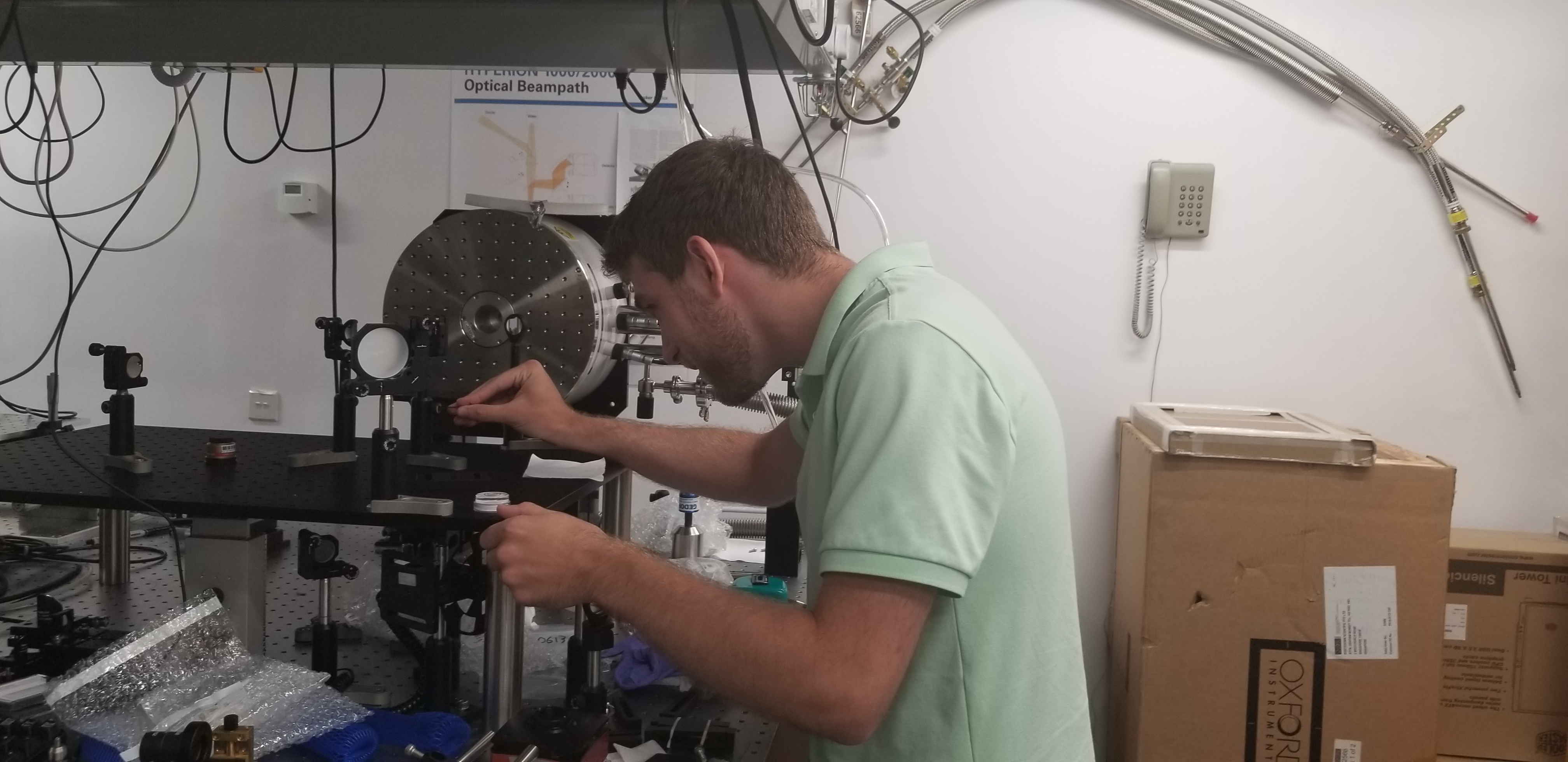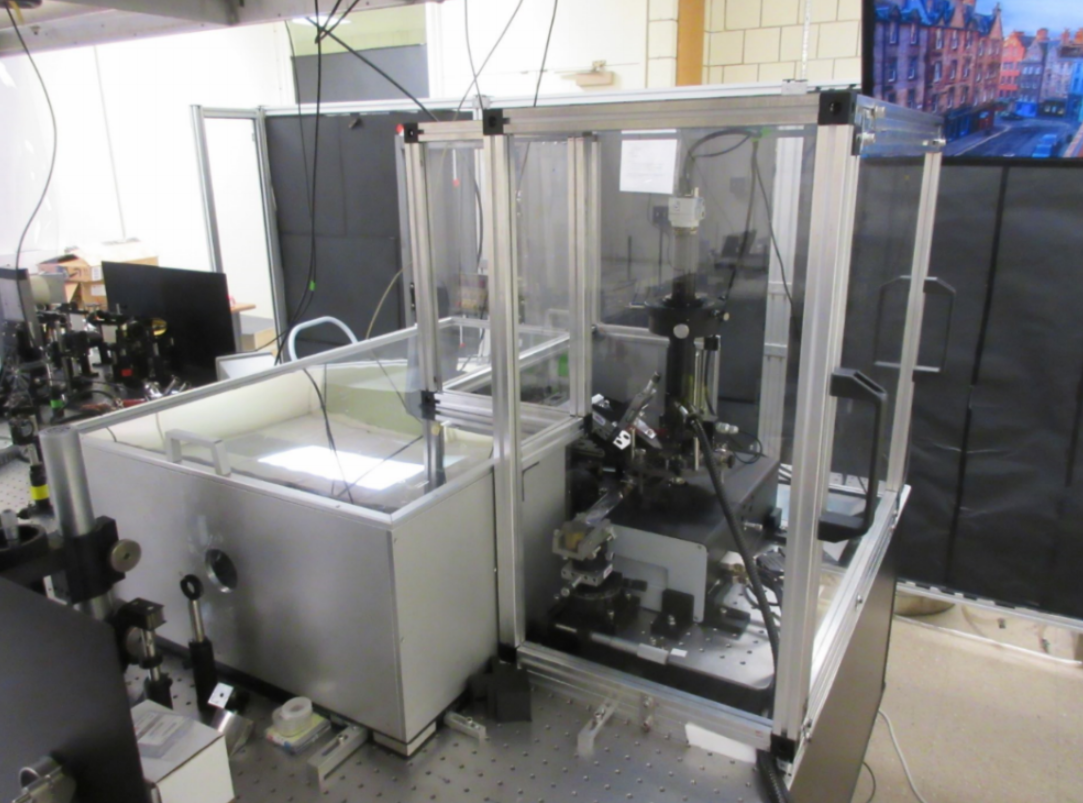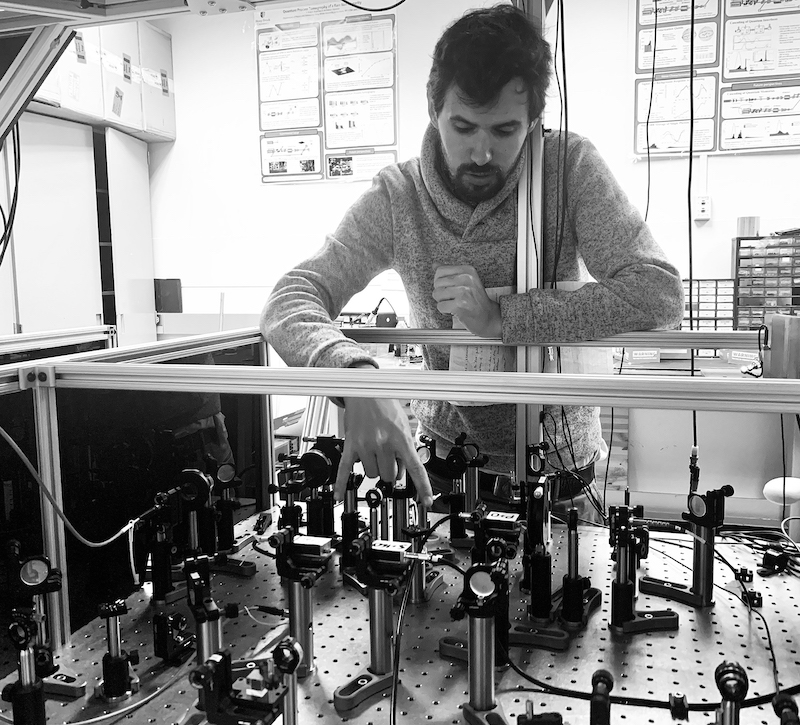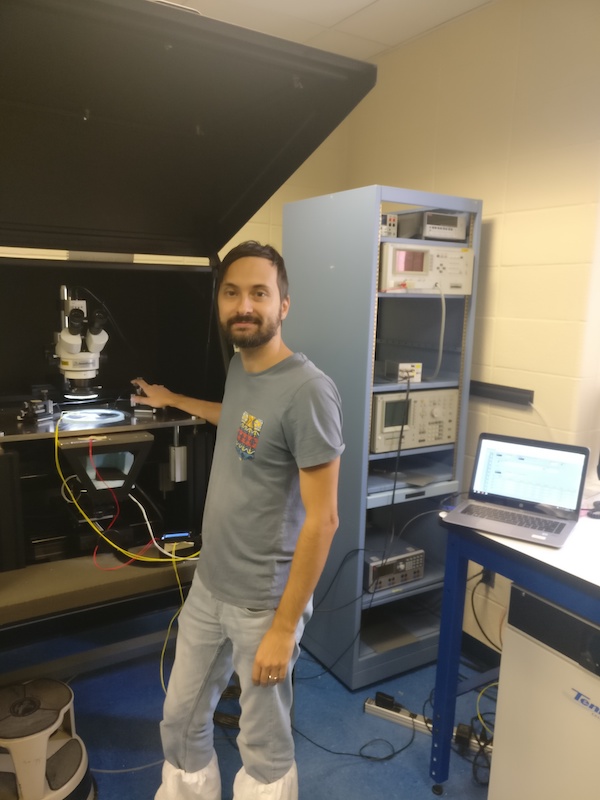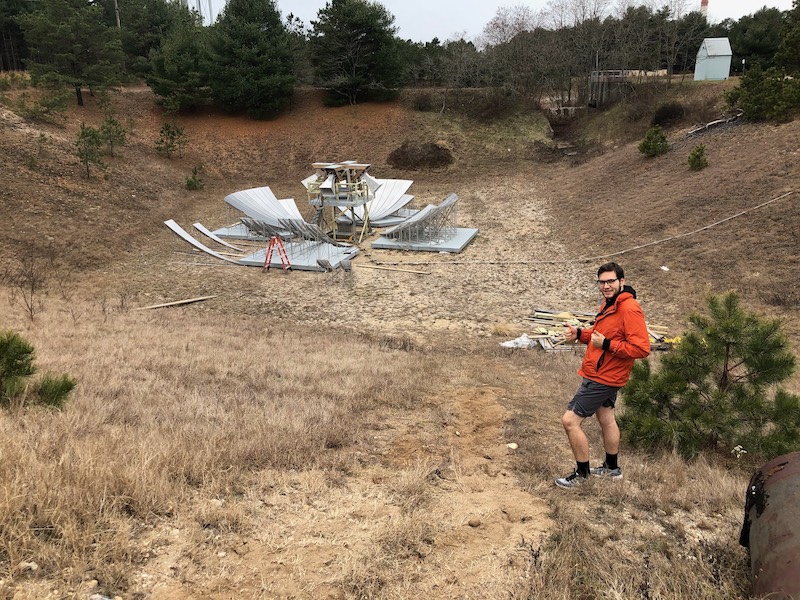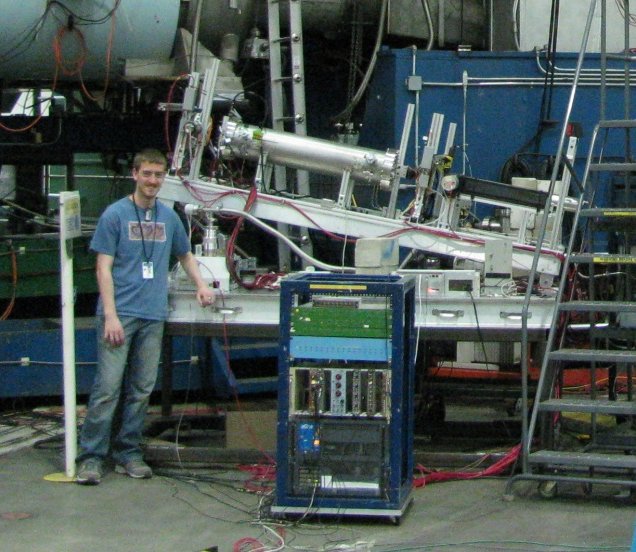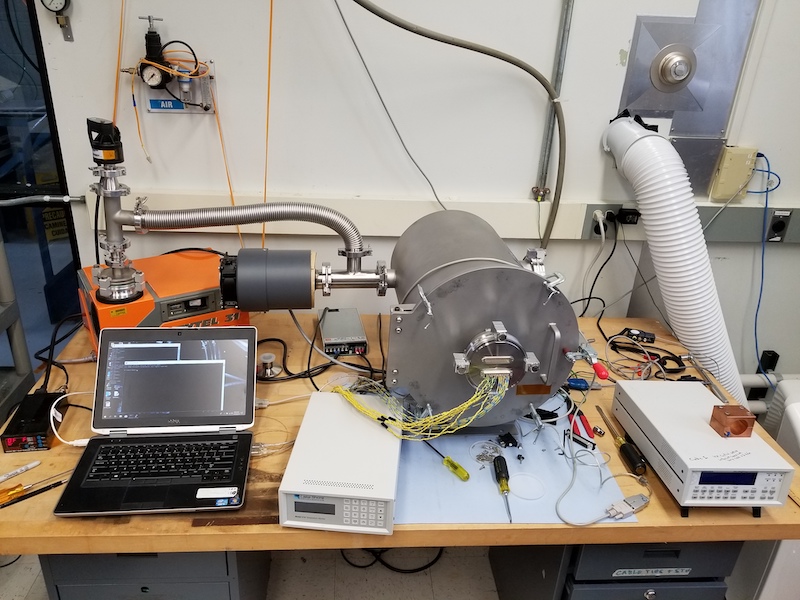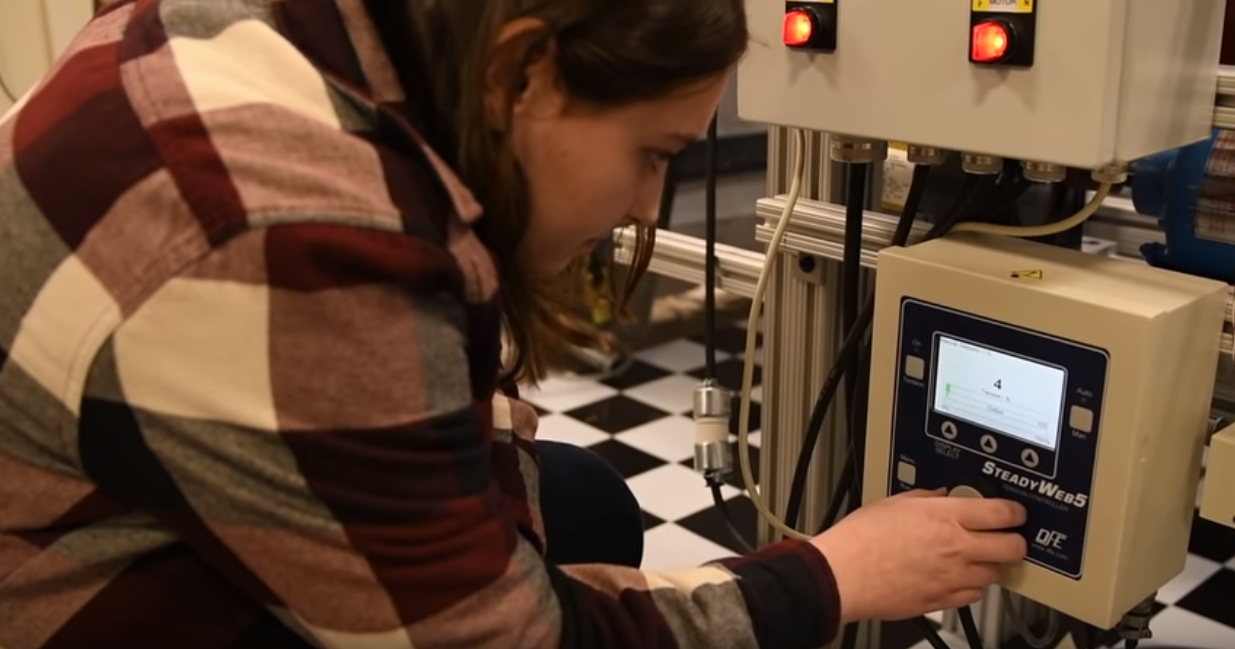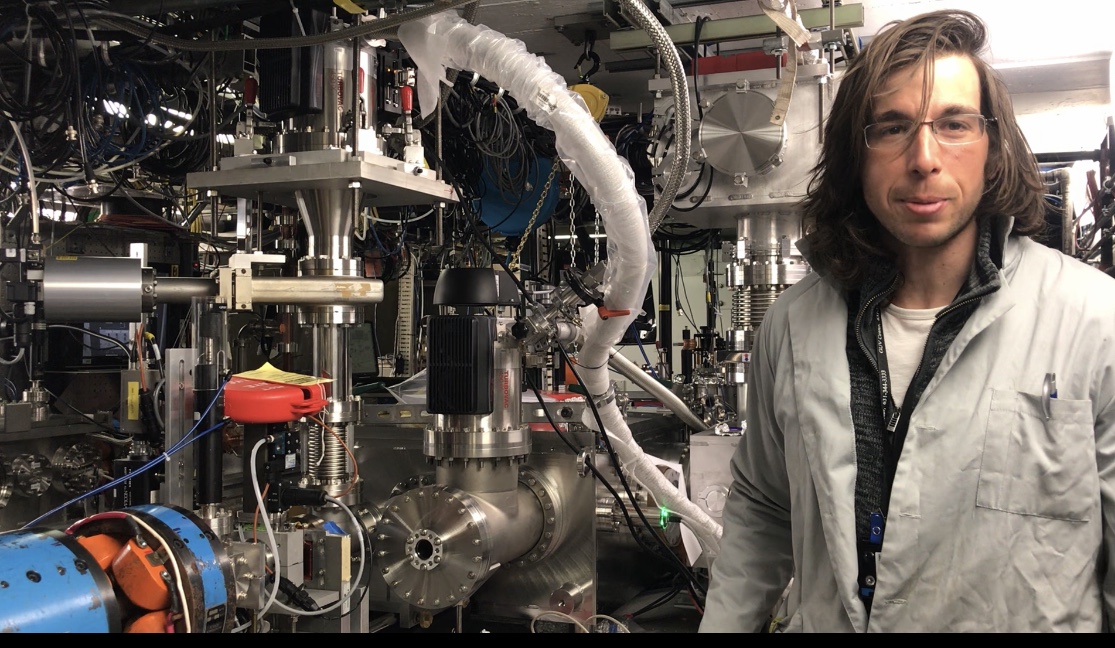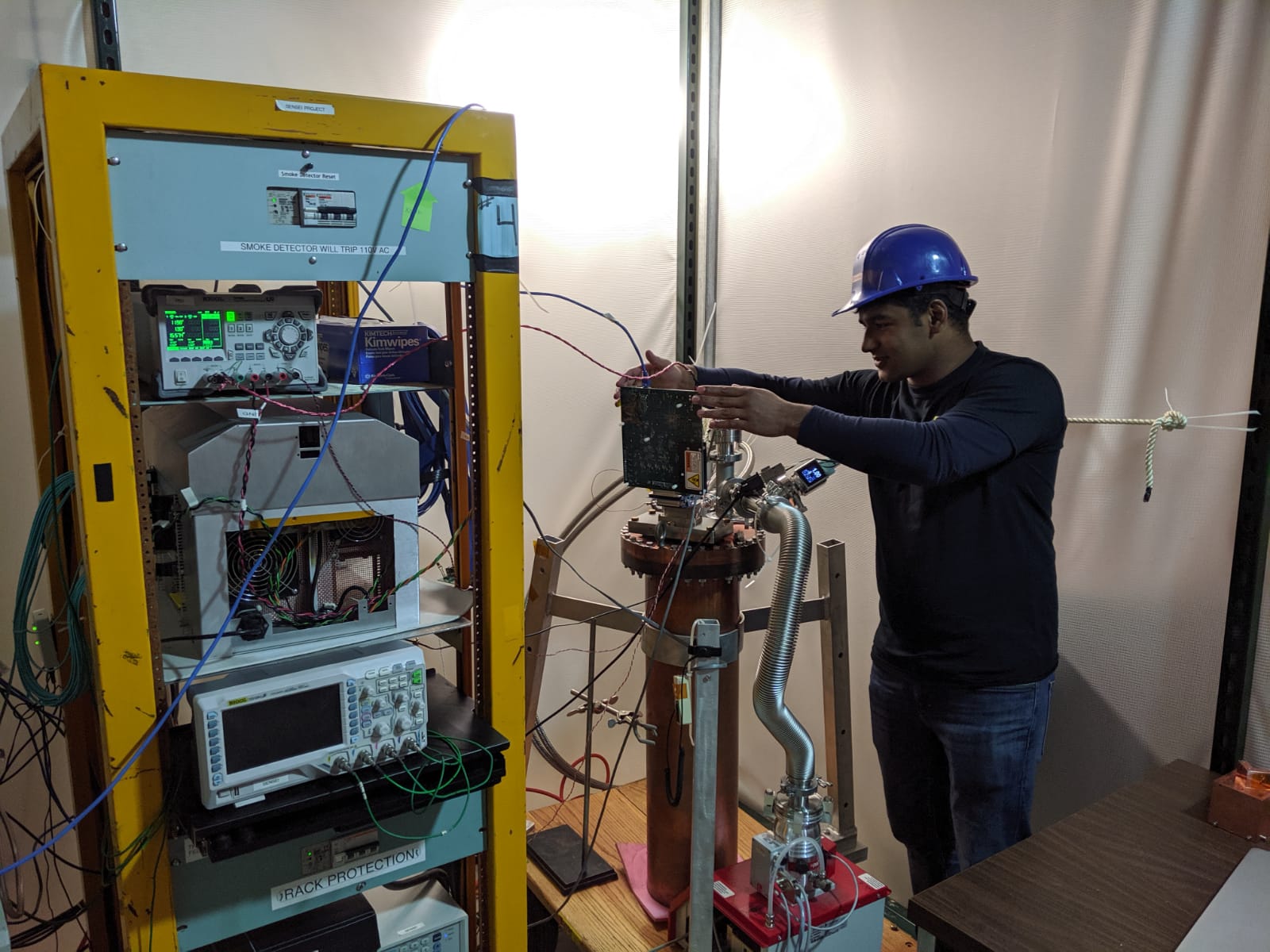Master of Science in Instrumentation
If you really enjoy making things work.
If you really enjoy making things that work.
This two-year Master's degree program prepares professionals with the technical background of physicists. It is offered at Stony Brook University to those who wish to enter a growing area of science. Our alumni have enjoyed multiple job offers, even in challenging times.
Current and Former MSI Students
Instrumentation has always been at the heart of scientific advances, and will continue to dominate in the foreseeable future. Beginning with telescopes and microscopes, and advancing through spectroscopes and oscilloscopes, such "scopes" have enabled people to "see" things beyond the limits imposed by their sensory mechanisms. The evolution went from seeing to measuring, and then the concept of instruments changed drastically. We have developed generators, accelerators, lasers, and myriad other devices that could modify objects or create events, instead of just observing them. If you are a physical science major and more of a lab person than anything else, then you should look at our Master of Science Degree in Physics with Concentration in Instrumentation.
The Master of Science in Physics with Concentration in Instrumentation program at Stony Brook (MSI) is designed to train professional physicists for careers in research at the frontiers of knowledge in universities, modern industries, government labs, hospitals, and other technologically oriented enterprises. Highly educated scientists at the Master's level are in great demand, and that need is expected to increase as the employment in the US is moving towards more high-tech jobs. The professional track through MSI may be especially valuable to those interested in industrial careers because it also awards a Professional Science Masters degree.
Tracks
There are multiple tracks through the MSI program. The traditional track is for those students who want to pursue a purely technical career, and as such embodies the two laboratory projects: minor and major. The professional track exchanges the minor project for courses normally offered to MBA candidates, and is designed for those students who foresee some management or entrepreneurship activities in their future. It is affiliated with the Professional Science Master's degree (http://www.sciencemasters.com/).
General Instrumentation
This track is designed to meet the needs of modern industry, hospitals, and research laboratories for technically trained people with thorough scientific background and practical skills in designing, building, and operating scientific instruments. Such jobs are often filled by people whose education is not directed toward this particular need. Many of them presently take on-the-job training in precisely the topics this program teaches.
Professional Track
The professional track is designed to transform into the Professional Science Master's (PSM) degree, a rapidly expanding program nationwide that offers science students a professional component that may include internships and "cross-training" in business and communications (see http://npsma.org/). It consists of the two years of MSI education in modern research instrumentation complemented by at least nine credits of courses in Stony Brook's College of Business, the school of Journalism or similar courses from different program (subject to approval). On the national scale, the programs have been developed in concert with industry and are designed to dovetail into present and future professional career opportunities. There are currently 345 PSM degree programs at over 157 colleges and universities nationwide. The PSM programs are supported by the Sloan Foundation, the Council of Graduate Schools, and a host of other academic and scientific organizations. More information about the business component of the track is here.
Synchrotron Radiation
This track is coordinated with the needs of NSLS II at nearby Brookhaven National Laboratory (BNL), and many of our graduates may find attractive job opportunities there. Students in this track should take "Applications of Synchrotron Radiation". Fellowships for tuition and stipend are available from BNL.
Accelerator Physics
This track is for students interested in accelerator instrumentation and the operation of particle accelerators. Stony Brook and BNL scientists involved in the Center for Accelerator Science and Education (CASE) will offer training through lecture courses, laboratory practice and experiments on accelerators. Students on this track are required to take "Introduction to Accelerator Physics". Fellowships for tuition and stipend are available from CASE or from BNL.
MSI Degree Requirements
For the MSI degree students must:
- Complete thirty credits (minimum) of graduate courses (500 level or above).
- Comlete a Master's thesis. This thesis must describe a major piece of work in scientific instrumentation and must be in a form acceptable to the Graduate School. It need not be original research in the same sense as a Ph.D. thesis, but it should be the result of an effort consistent with a full year of full-time work. The thesis should present an improvement of the state of the art in some area, the development of a sophisticated and/or automated apparatus, or some other significant laboratory project, and be presented before a committee.
- Demonstrate proficiency in physics at the level of our present undergraduate courses PHY 335 (Junior Laboratory I), PHY 405 (Advanced Quantum Physics). Students need to have demonstrated knowledge in two of the three areas: Nuclear and Particle Physics (covered in PHY 431), Condensed Matter Physics(PHY 472) and Laser and Atomic Physics (PHY 452). This can be done: 1) by acceptance by the MSI Committee of courses taken by the student as an undergraduate, 2) by specially arranged written examination, or 3) by passing the courses appropriate to a student's background.
- Complete a minor project for the General Instrumentation track and appropriate courses for the Professional track.
- Take a course about research instrumentation (PHY 514)
- Take two semesters each of graduate lab (PHY 515) and graduate seminar (PHY 598, 599)
- Work as a Teaching Assistant in an undergraduate laboratory for at least one semester (being a TA in PHY 445 may satisfy the requirement of taking the second semester of graduate lab (PHY 515)).
In addtion to these requirements, students shall acquire those technical skills deemed necessary by their thesis supervisors. These must include, but are not limited to machining capability and computer literacy. In addition, there are many courses offered by other departments in instrumentation, materials science, etc., that might be suitable electives. Permission may be granted to reduce the number of thesis credits or to take some of them during the summer in order to allow for these electives.
Those in the professional track will take appropriate electives. Permission may be granted to reduce the number of thesis credits or to take some of them during the summer in order to allow for these electives. Tracks within the MSI program offer an opportunity to take courses in a specific area of interest, for example, Business, Accelerator Physics, or Synchrotron Radiation. Professional track students replace the minor project with 9 credits of business courses.
Sample Program
Total = 44 credits (specific courses listed are required)
(First Year Semester 1)
PHY 514 Current Research Instruments (3 credits)
PHY 515 Methods of Experimental Research (3 credits)
PHY 599 or PHY 598 Graduate Seminar (1 credit)
Electives, make-up, minor project, or business electives, depending on track choice (6 credits)
(First Year Semester 2)
PHY 515 Methods of Experimental Research (3 credits)
PHY 598 or PHY 599 Graduate Seminar (1 credit)
PHY 580 Minor project (3-6 credits), or business electives (6 credits), depending on track choice
Electives (3-6 credits)
Sample Second Year: Both Semesters PHY 595 Thesis Research (9 credits each semester)
Application to the MSI Program
For admission to graduate study in Physics and Astronomy the following, in addition to the minimum Graduate School requirements, are required:
- A bachelor’s degree in physics or a related field from an accredited institution.
- A minimum grade average of B in all undergraduate coursework, and B or better in the sciences and mathematics.
In special cases, a student not meeting requirement A (or, in unusual cases, requirement B) may be admitted on a provisional basis. Upon admission, the student will be informed of the requirements that must be satisfied for termination of provisional status.
All students must submit their application to the Graduate School online and all materials
such as recommendations letters and transcripts should be submitted electronically.
Contact
Information on the Master of Science Degree in Instrumentation
Professor Harold Metcalf
Department of Physics & Astronomy
Stony Brook University
Stony Brook, NY 11794-3800
harold.metcalf@stonybrook.edu
Graduate Admissions, Donald Sheehan
Department of Physics & Astronomy
Stony Brook University
Stony Brook, NY 11794-3800
donald.j.sheehan@stonybrook.edu

